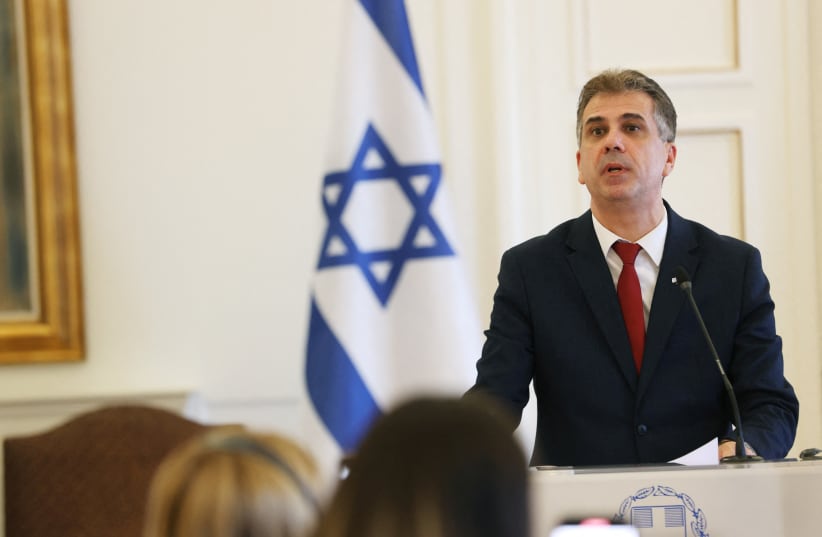If the IDF ground offensive in Gaza continues, with no pause in fighting, we may soon be nearly three months into the war of a generation. For many of us, we still wake up stuck in time, on that grim and terrible Saturday morning that was October 7.
But while the fighting has dragged on, a political headline that at first seems more procedural than anything else made ripples last week. On Wednesday, it was announced that the planned rotation for the position of foreign minister would take place on Sunday, December 31. Eli Cohen is to be replaced by Haim Katz.
“I will honor the deal, but I think it is less correct to do so in a time of war,” Cohen told Ynet Live on Thursday. So why is the leadership position of one of the most important ministries being swapped – especially in the middle of a war? Why did it happen in the first place, and why is it so important for Prime Minister Benjamin Netanyahu to make sure it happens?
For the past 20 years, other than Netanyahu and Yisrael Beytenu head Avigdor Liberman, no one has led the ministry for more than three years, a long process that, over time, weakened this seminal position. The ceremonial switchover, one in a long line of short tenures, is a symptom of something bigger.
This isn’t to say that the people who took up these positions didn’t do the job right. Current Foreign Minister Eli Cohen has done probably more than most under Netanyahu, advancing Israel’s ties with Turkmenistan and Azerbaijan alike. The man poised to next take the position, Haim Katz, served as foreign minister for a year from 2019 to 2020 and advanced both a regional rail line to link Haifa with Jordan, Saudi Arabia, and the Gulf States in 2018, as well as pushing forward in 2017 with a proposal to build an island with a seaport off the Gaza coast, offering the Gazans some relief.
Netanyahu sucked the power out of the role of foreign minister
The position of foreign minister used to be the second most powerful job in Israel, one that politicians aspired to reach, according to Gil Hoffman, who covered politics for The Jerusalem Post for over 20 years.
There have been great figures who filled this post – Shimon Peres from 1986-1988, 1992-1995, and finally from 2001-2002, and Abba Eban from 1966-1974.
But one person – though he was not the only one – who significantly sucked the power out of the role was Netanyahu, by ensuring that the “real” diplomacy – with the Americans, for example – was done either by him or by his associates. In some ways, he is one of the best foreign ministers we’ve had in the last 20 years.
A noteworthy figure who filled the role in recent years was Yesh Atid head Yair Lapid, trying to sweep away some of the less productive ministries. The people who are supposed to fight for Israel’s image on social media and towards influencers – who should ostensibly be under the Foreign Ministry – have been shuffled around, and are now under the Diaspora Affairs Ministry. Even though the work is being done after a fashion, it is scattered under the wrong banners.
Some elements in Israel realized that being quick to respond – in English, calmly, and succinctly – must be the priority. A good example is the IDF Spokesman’s Unit. Chief Spokesman R.-Adm. Daniel Hagari has been quick to issue information in real time in English, including from his visits to the Gaza Strip. The lessons learned from years of bad “public diplomacy” or hasbara are finally being implemented by some.
We were caught unprepared on October 7, not just from a military and security perspective, but also in the field of foreign relations. It is not the fault of the dedicated Foreign Ministry workers, but of decades of neglect. This bait and switch of foreign ministers between Cohen and Katz is a microcosm of that.
Katz has unique experiences that make him very well-suited for the role; Cohen has done a good job – but that’s not the problem. Why are we abandoning such an important position to politics as usual during wartime?

